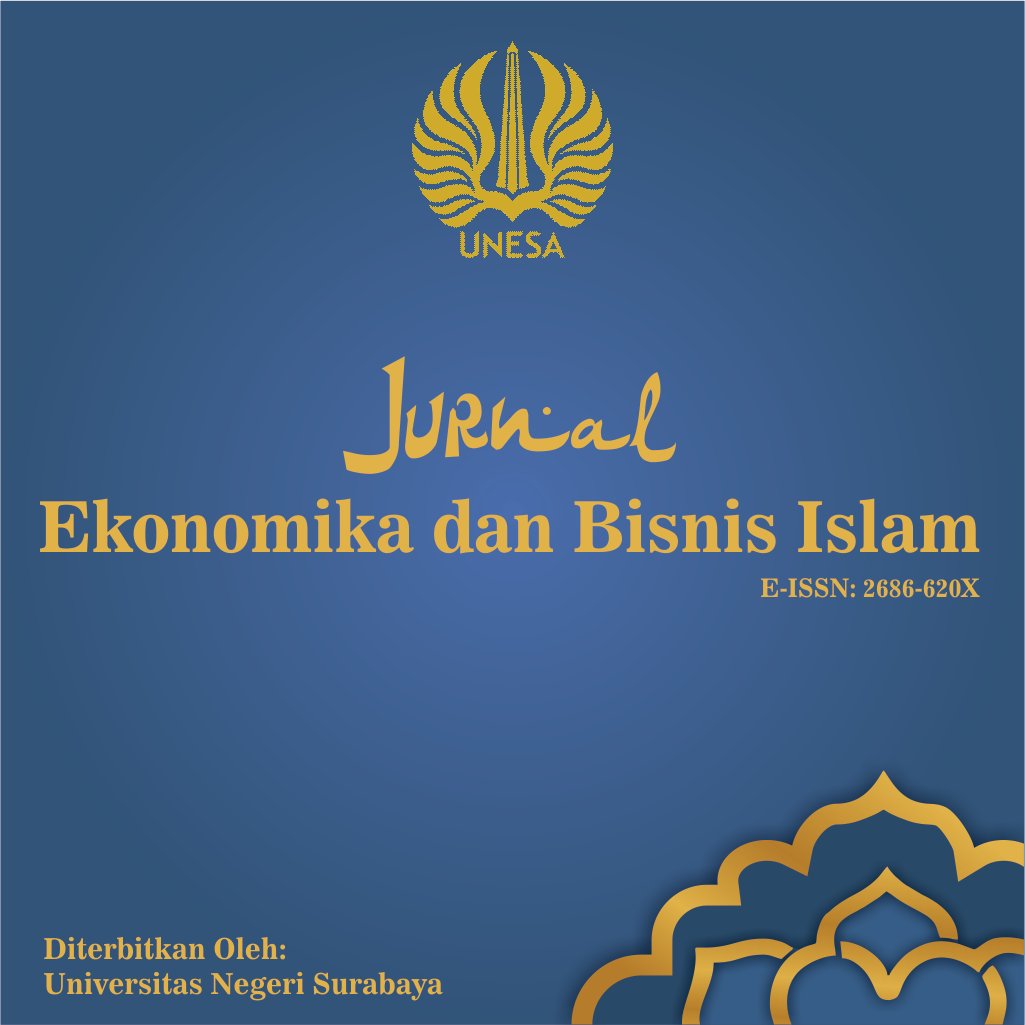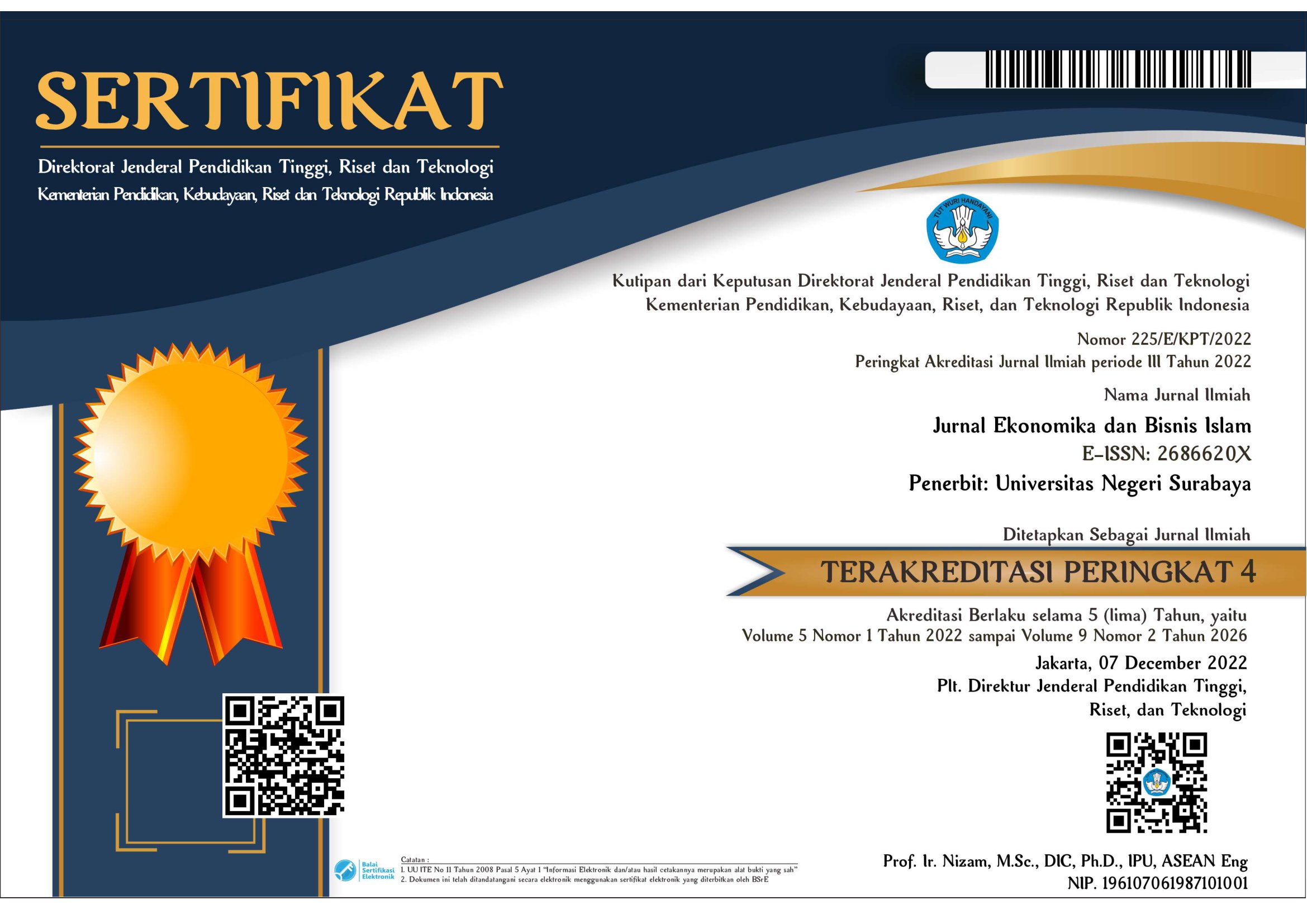Perilaku Pedagang Pasar Pabean Surabaya Dalam Perspektif Prinsip Dasar Pasar Islami
DOI:
https://doi.org/10.26740/jekobi.v6n2.p124-136Keywords:
Market, Behavior, Basic Principles of Islamic Market., SellerAbstract
In buying and selling activities, it is only natural for traders to seek profit, but because of the high competition between traders, traders justify any means to pursue profits and even traders ignore ethics in doing business. This is inversely proportional to what the Prophet did, the Prophet Muhammad SAW was a professional trader in buying and selling his wares, he was known as an honest person in doing business and this became the basis for many people to believe in him. This study aims to determine the behavior of Surabaya Customs market traders in the perspective of the basic principles of Islamic markets. This type of research uses descriptive qualitative research. data collection techniques using observation, interviews and documentation. The results showed that the behavior of traders in the Customs market was quite good, but the behaviorof traders needed to be improved in terms of the accuarcy of measuring the scales. In fact, they did not find fraud in terms of scales, but the scales had not been re-calibrated by the relevant officers for the last 5 years. And traders in the Customs market have implemented the basic principles of the Islamic market even though the Customs market is an ordinary traditional market or a conventional market and not a sharia market that applies sharia principles in it. The basic principles of the Islamic market include the principles of Ar-Rida, the principles of fair competition, the principles of honesty, the principles of openness and the principles of fairness.
References
Abdullah, T., & Tantri, F. (2018). Manajemen Pemasaran (7th ed.). PT Raja Grafindo Persada.
Ali, Z. (2008). Hukum Perbankan Syariah. Sinar Grafika.
Aziz, A. (2013). Etika bisnis perspektif islam : Implementasi etika islami untuk dunia usaha / Abdul Aziz. Alfabeta.
Boediono. (2015). Ekonomi Mikro. BPFE.
Firdaus, S. (2022). Raup Keuntungan Rp6 Miliar, Pemilik Agen Sembako di Tanjung Priok Ditangkap, Ternyata Ini Modusnya. Inews.Id.
Islam, P. P. dan P. E. (2015). Ekonomi Islam. Rajawali Pers.
Kansil, & Kansil, C. S. . (2008). Pokok-Pokok Pengetahuan Hukum Dagang Indonesia (Cet.4). Sinar Grafika.
KBBI. (n.d.-a). Arti Kata Pasar.
KBBI. (n.d.-b). Arti Kata Perilaku.
Kluytmans, F. (2006). Perilaku Manusia : Pengantar Singkat Tentang Psikologi (Cet. 1). PT Refika Aditama.
Muzaiyin, A. M. (2021). Perilaku Pedagang Unggas Ditinjau Dari Perspektif Etika Bisnis Islam Etika Bisnis Islam ( The Behavior of Poultry Traders Viewed from Islamic Business Ethics Perspective ) Perilaku Pedagang Unggas Ditinjau Dari Perspektif Etika Bisnis Islam. 5(1).
Peraturan Presiden Nomor 112 tahun 2007 tentang Penataan dan Pembinaan Pasar Tradisional, Pusat Perbelanjaan dan Toko Modern
Qardhawi, Y. (1997). Norma dan Etika Ekonomi Islam (Cetakan Pe). Gema Insani Press.
Rahmawati, L., & Faidah, M. (2020). Survival of Traditional Retailers: An Islamic Business Perspective. Al-Uqud : Journal of Islamic Economics, 4(1), 18. https://doi.org/10.26740/al-uqud.v4n1.p18-31
Statistik, B. P. (n.d.). Sebaran Pasar dan Pusat Perdagangan Menurut Klasifikasi 2019.
Tabloidjubi.com. (2019). Banyak Para Pedagang Curang Di Pasar Pharaa Sentani. Jubi.Co.Id.
Wibowo, S., & Supriadi, D. (2013). Ekonomi Mikro Islam. Pustaka Setia.
Downloads
Published
How to Cite
Issue
Section
License
Copyright (c) 2023 Rizky Imani Harmain, Khusnul Fikriyah

This work is licensed under a Creative Commons Attribution 4.0 International License.
This work is licensed under a Creative Commons Attribution 4.0 International License.
 Abstract views: 291
,
Abstract views: 291
, PDF Downloads: 398
PDF Downloads: 398














